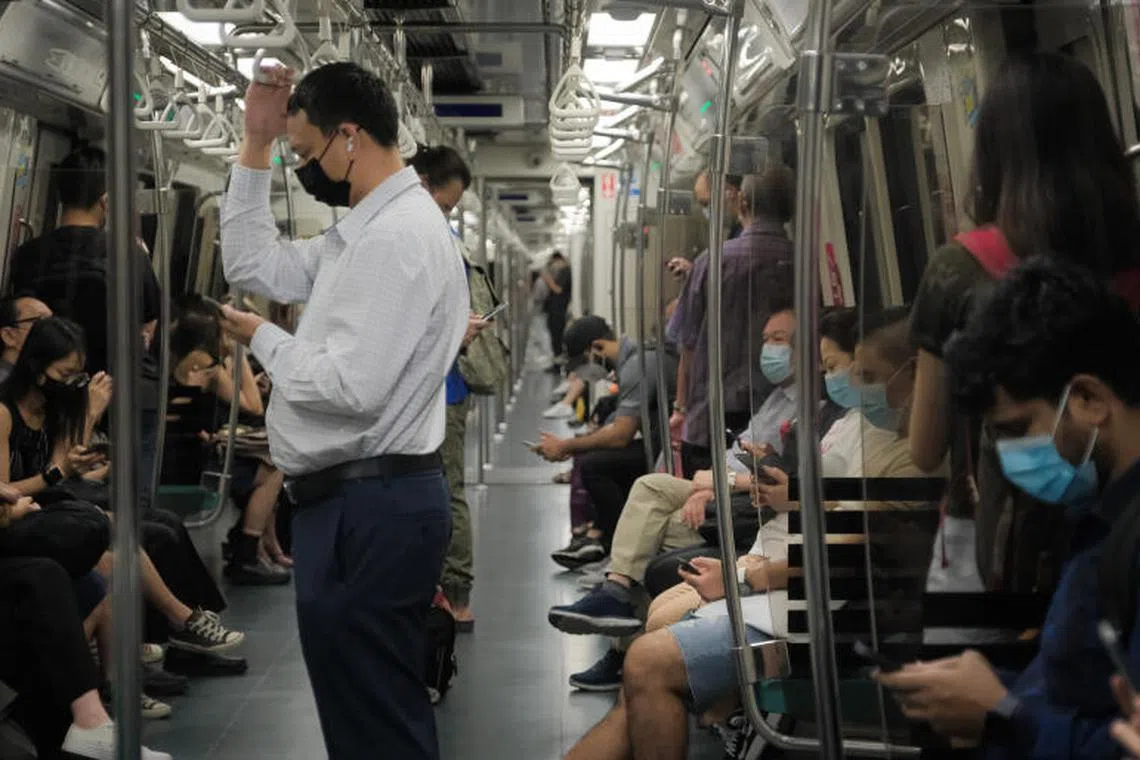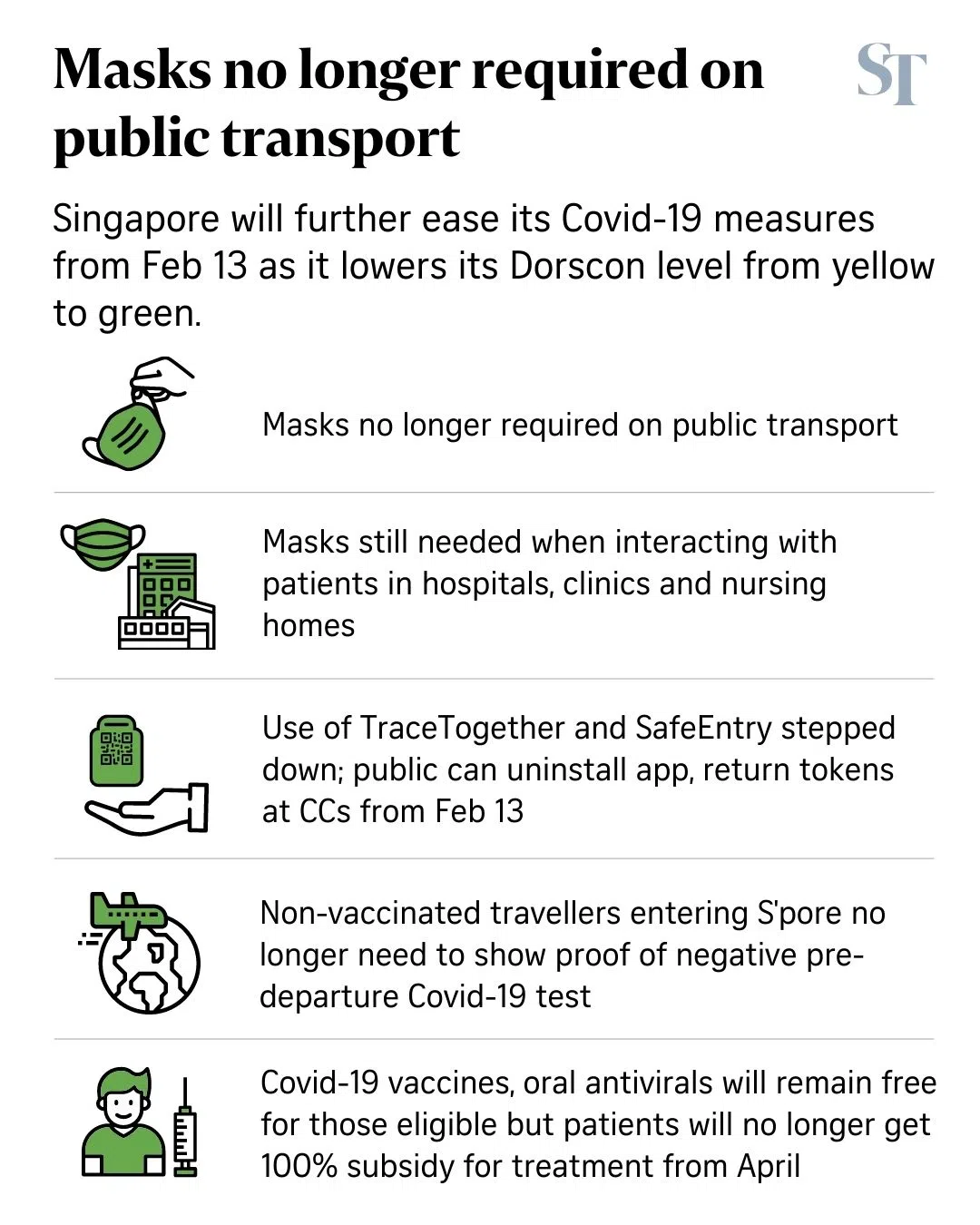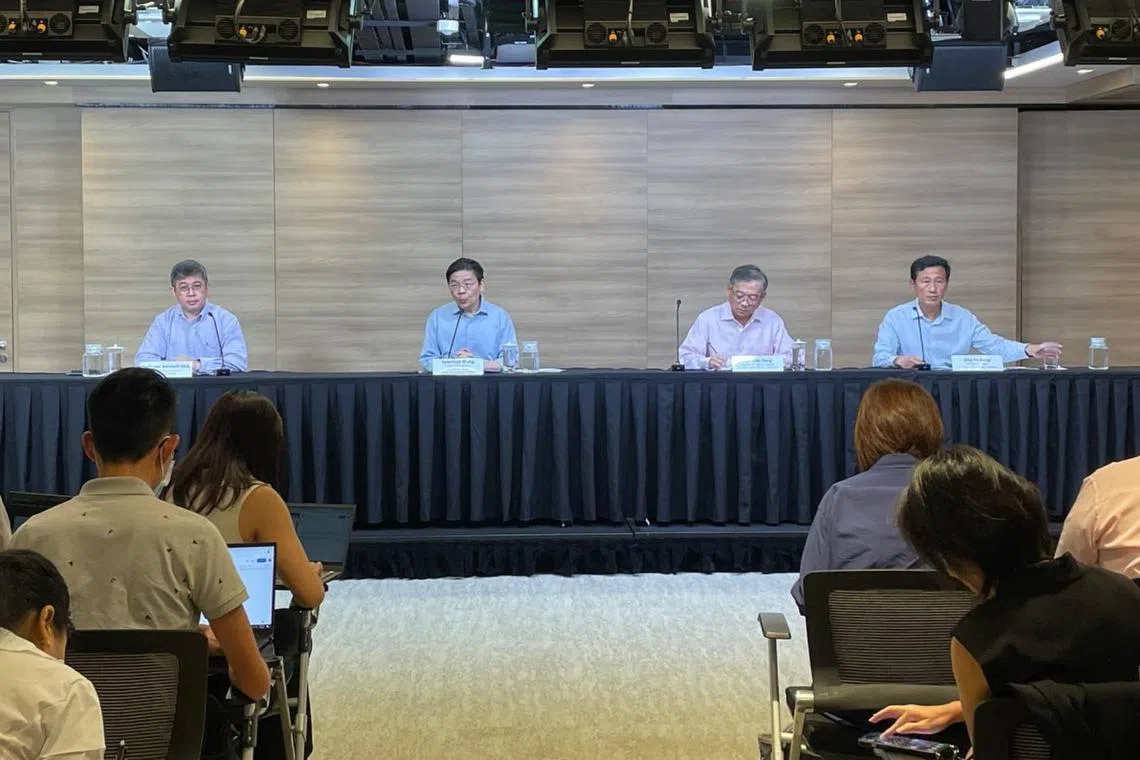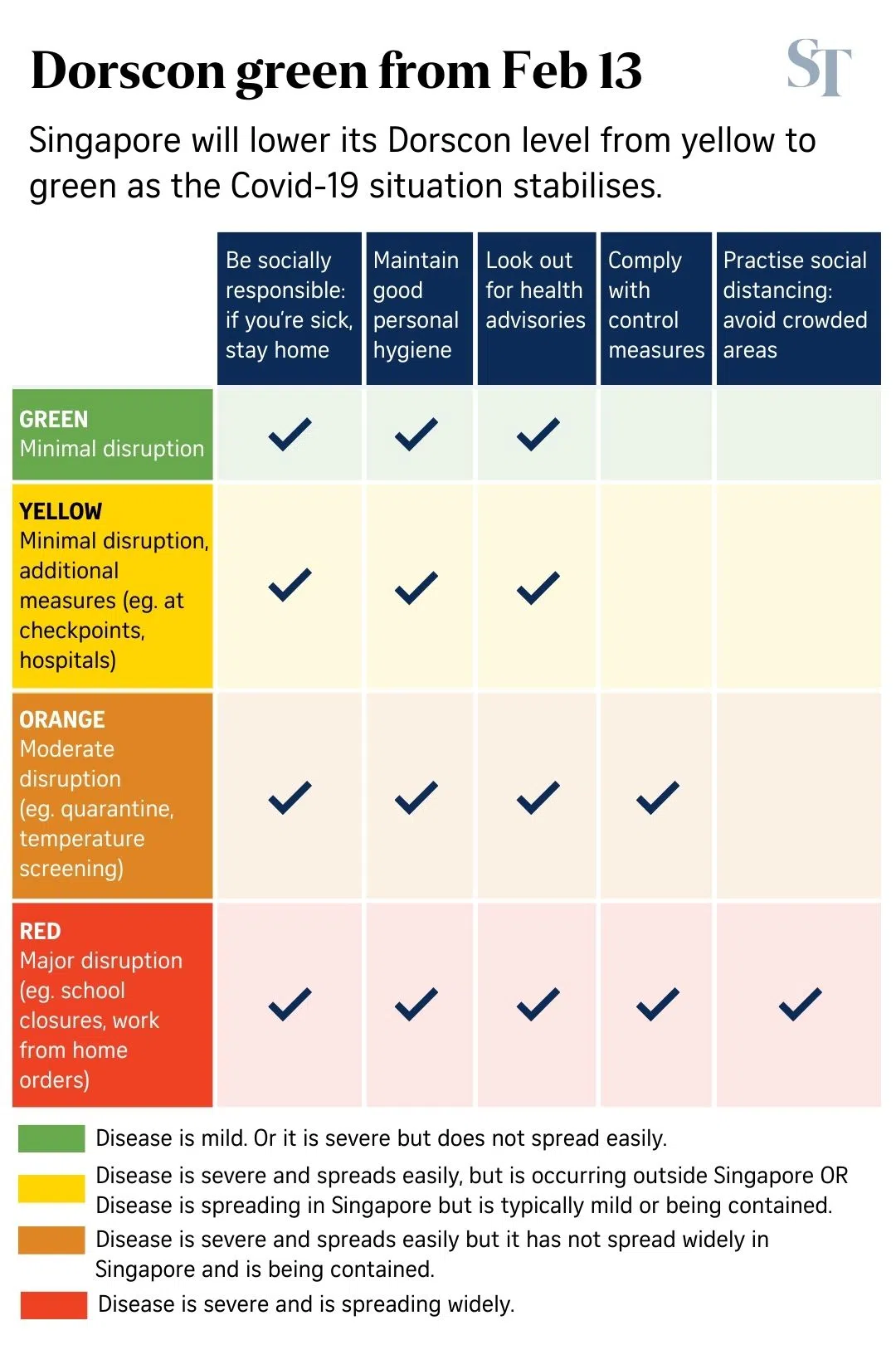Masks no longer required on public transport from Feb 13 as Singapore moves to Dorscon green
Sign up now: Get ST's newsletters delivered to your inbox

Singapore will lift its remaining Covid-19 restrictions like mask requirements on public transport from next Monday.
ST PHOTO: GAVIN FOO
Follow topic:
SINGAPORE – Singapore will lift its remaining Covid-19 restrictions like requiring masks on public transport from next Monday, when the country adjusts its disease outbreak response to the lowest level.
The lowering of the Disease Outbreak Response System Condition (Dorscon) from yellow to green
However, MOH will still require mask-wearing for visitors, staff and patients in healthcare and residential care settings such as hospital wards, clinics and nursing homes, where there is interaction with patients, the multi-ministry task force handling Covid-19 said at a media conference.
Vaccination will continue to be offered free to all Singapore citizens, permanent residents, long-term pass holders and certain short-term pass holders.
Everyone aged five and above should still get minimum protection – three doses of mRNA vaccines or the Novavax vaccine, or four doses of the Sinovac vaccine – while the Government will recommend that certain groups take booster jabs annually, said task force co-chair Ong Ye Kung, who is Health Minister.
However, pandemic subsidies will be further scaled back as Covid-19 is treated as an endemic disease. Treatment will no longer be fully subsidised, and patients will have to pay for any Covid-19 testing.
Mr Ong said Singapore’s high vaccination coverage was a key reason why it could progressively restore normal living while keeping deaths caused by Covid-19 at one of the lowest levels in the world, and arrive at Dorscon green.
About 80 per cent of the population have achieved minimum protection, and around half are up to date with Covid-19 vaccination, said MOH.
Mr Ong noted that Singapore had been worried about three areas of potential risk: the year-end travel season, the Northern Hemisphere winter and China’s shift away from its zero-Covid policy.
“But today, those risks are substantially past. We cannot rule out the future possibility of dangerous variants of concern emerging, but the uncertainties and risks we face now are significantly lower compared with one or two months ago,” he said.
Border measures will also be lifted
Meanwhile, migrant workers will no longer face community restrictions from Monday, as the Government discontinues the Popular Places Pass system meant to manage crowding in four designated popular locations on Sundays and public holidays.
From March 1, workers will also be able to recover from Covid-19 within their dormitories instead of being taken to recovery facilities.

Given the stable pandemic situation, MOH said it will step down its contact tracing systems,
MOH has also deleted all identifiable TraceTogether and SafeEntry data from its servers and databases, it said.
A TraceTogether token return exercise will be held from next Monday to March 12 at all 108 community clubs.
The multi-ministry task force, which was convened in January 2020, will also be stood down from next Monday with the lifting of restrictions. MOH will assume management of the Covid-19 situation.

The multi-ministry task force, which was convened in Jan 2020, will be stood down from Monday, with the lifting of restrictions.
ST PHOTO: KUA CHEE SIONG
If the situation worsens significantly, an appropriate multi-agency crisis management structure will be reactivated, the ministry said.
Deputy Prime Minister Lawrence Wong, who co-chairs the task force, said the Government’s pandemic management framework and processes continue to be in place.
“We are standing down, but as many of my colleagues have said in this panel, we are continuing to maintain a high level of alertness and preparedness. So we are operationally ready, to use the words of the SAF (Singapore Armed Forces). Any time the button is pressed, we will stand up again,” he added.
These moves come more than three years after Singapore detected its first case of the coronavirus.
The Republic raised its Dorscon level from green to yellow on Jan 21, 2020, and to orange on Feb 7 that same year. lowered from orange to yellow
Trade and Industry Minister Gan Kim Yong, also a co-chair of the task force, said Covid-19 will not be Singapore’s last pandemic or crisis. “We must always remain vigilant and draw on the lessons we have learnt during the Covid-19 pandemic, so that we can be better prepared for future crises.”
In a Facebook post, Prime Minister Lee Hsien Loong said battling the pandemic has been a long hard slog, with many unexpected twists and turns.
“This crisis of a generation has profoundly shaken our lives and changed the world. But standing united, we weathered the pandemic safely,” he added.
“We supported and trusted one another throughout this journey, and have emerged stronger and more resilient as a nation. This is a hard-earned achievement.”
READ NEXT: No masks on public transport: 6 things you need to know as S’pore lifts Covid-19 rules



